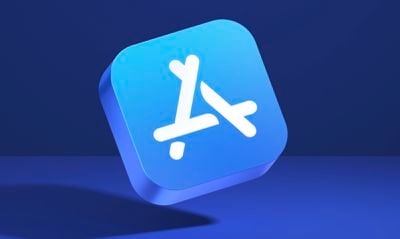Apple executive emails revealed in the Epic Games vs. Apple lawsuit highlight how the company came to its conclusion to take a 30% cut on all App Store transactions in a way that ensured it wasn't "leaving money on the table."

One email thread from 2011, spotted by The Verge, features Apple services chief Eddy Cue discussing the commission that the company should charge providers for content subscriptions accessed via Apple TV (an App Store on the set-top box didn't exist at the time.) Apple execs considered charging a 40% one-time cut, a 30% one-time cut, a 30% ongoing fee, or individualized deals with different providers.

Apple's team eventually decided to require the same 30% fees as it does on the iTunes Store and the App Store. Another email also discusses how Apple should negotiate referrals, where Apple TV apps link out to a provider's website for customers to subscribe directly to the service.

One executive said they wanted to ensure they protected the 30% fee that had long been enshrined in the App Store, but stated they would remain open to other deal structures.
"I don't want to do any deals where we get less than 30%. That is what it is on the app store and we can't be making a different deal here. If that is not possible than I want a one-time bounty but we need to very careful here so this doesn't spillover to the app store," one exec wrote. (The emails are threaded such that it's hard to tell who is replying to whom.)
Overall, the email thread appears to suggest that discussions evolved extemporaneously amongst Apple executives when it came to provider fees during the early development of the Apple TV platform, with maximum profit the main concern.
Amid increasing scrutiny over its App Store practices, Apple in November announced the Small Business Program, which saw App Store fees slashed to just 15% for developers earning under one million dollars per calendar year. The App Store commission remains at 30% for developers making over one million dollars per year.
The program has since received praise from many developers, but some larger developers including Epic Games criticized the move, saying it undermines the App Store's rules. Epic Games is ineligible for the reduced commission since it exceeds the $1 million earnings threshold. Apple said the program will benefit the "vast majority" of App Store developers.



















